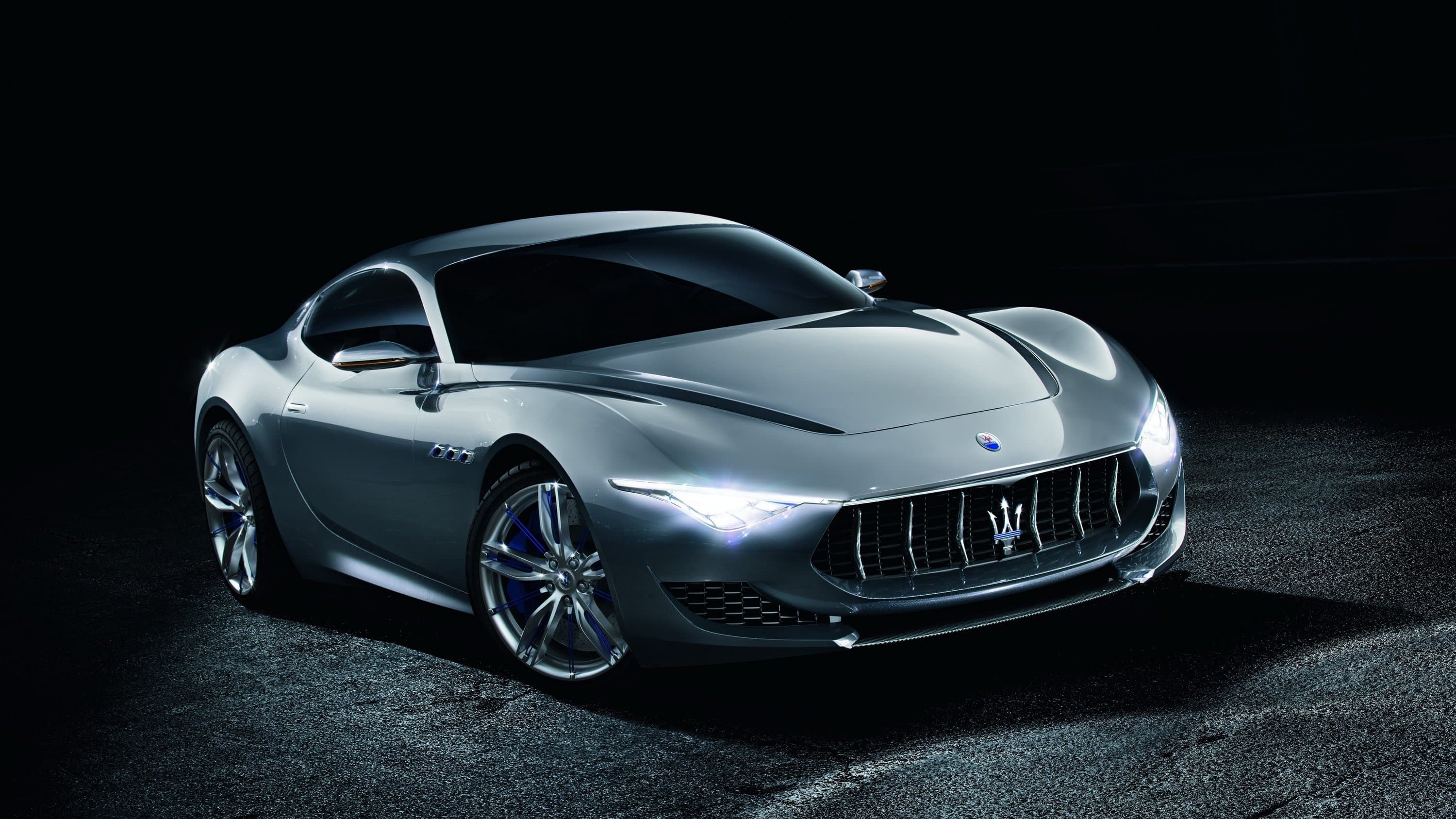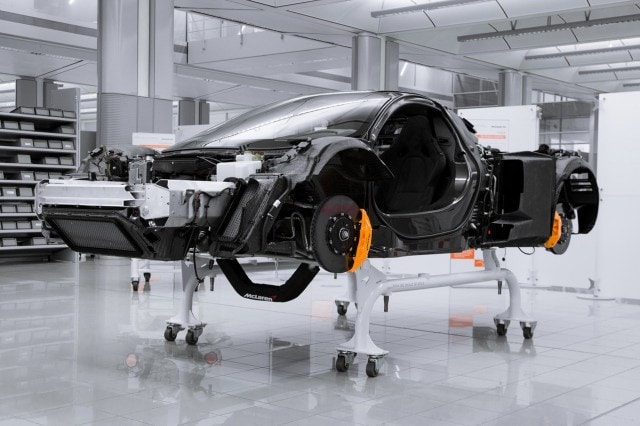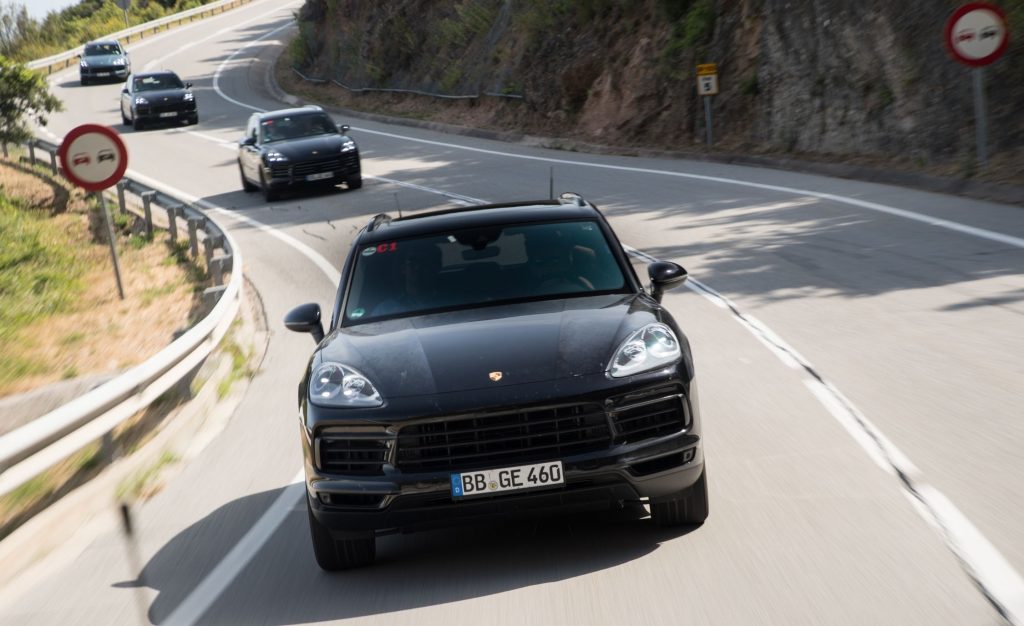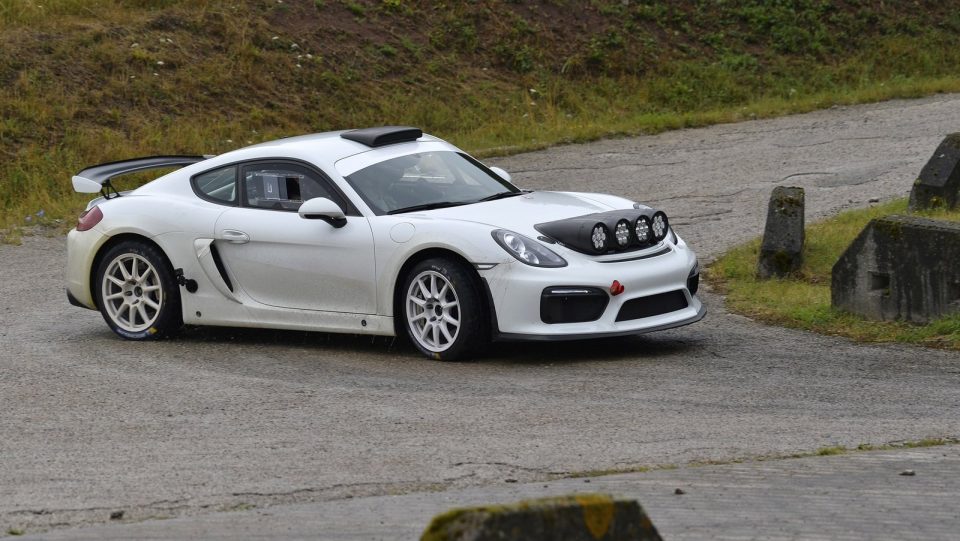
Maserati Is Going Hybrid in 2019
August 3, 2017
McLaren “P15” to be faster than P1, arrive in 2018
August 14, 2017Its proportions have hardly changed, which is a good thing: We’re charging along and barely being noticed. The front air intakes, the side-window graphic, most everything else—it all looks similar to the current Porsche Cayenne. You have to look twice to notice that something isn’t quite right, such as the fat, fake taillights. They look like the current Cayenne’s units, but they’re covering something new: a slim, three-dimensional LED light strip that stretches across the entire rear end. It’s part of Porsche’s new look for the brand, as are the headlights with four LED dots that invite the driver ahead to move out of the left lane—quickly.
And there’s something else that has become typical for Porsche: the futuristic cockpit, characterized by crisp, horizontal lines and a center console that houses a broad, flat touchscreen. That center screen is taken straight from the latest Panamera, as are the instruments in front of the driver. The gears can be chosen via the same compact selector in the center console or the paddles attached to the steering wheel. If the Sport Chrono package is specified, there is the classic stopwatch mounted atop the dashboard. It looks out of place in this futuristic environment, but it’s a favorite of many customers.
When the new Cayenne, internally called E3, comes to market this fall, there will be three gasoline engines: a 330-hp turbocharged 3.0-liter V-6 in the Cayenne, a 440-hp twin-turbocharged 2.9-liter V-6 in the Cayenne S, and a 550-hp twin-turbo 4.0-liter V-8 in the Cayenne Turbo. All were developed in cooperation with Audi, with that brand spearheading the sixes and Porsche taking the lead on the V-8.
Later, there will be plug-in hybrids. A model based on the 2.9-liter V-6 will make about 460 horsepower in total, and the range-topping Cayenne will borrow the Panamera Turbo S E-Hybrid’s V-8 and electric hardware to produce some 680 horsepower. Don’t expect the fantastic diesel engines—a 3.0-liter V-6 with roughly 320 horsepower and a 420-hp 4.0-liter V-8—to appear in the U.S. market. (They’ll be late to the game in Europe as well.) All engines are mated to a ZF-sourced eight-speed automatic.
The step from the outgoing second-generation Cayenne to this third-gen model is far greater than from the first to the second, the latter of which was little more than a heavy facelift on the original platform. Now Porsche moves to the Audi-developed MLB Evo architecture, which comes in two wheelbases. The Cayenne, like the Audi Q5, rides on the shorter one.
And that’s the right decision, because the Cayenne emphasizes the sport in SUV. It’s lighter than its predecessor by 100 to 250 pounds, it comes with a rear-biased but fully variable all-wheel-drive system, and for the first time it uses staggered-size wheel-and-tire combinations with bigger pieces fitted at the rear. Down the road, we’ll see wheel sizes between 19 and 22 inches. There is a standard steel-spring suspension setup with variable dampers as a step-up enhancement, as well as an optional three-chamber air-spring system. We drove the latter, which was most impressive.
Driving along in prototypes over snow and ice in Canada or tarmac and gravel in southern Europe, the Cayenne feels tight, solid, and eminently maneuverable. There is virtually no body roll, and the powertrains ooze sophistication. The V-6 engines emit a silky, sporty sound, while the V-8 has a characteristic bellow.
Porsche has been running some 150 prototypes all over the world: in Dubai, South Africa, California, and at the Great Slave Lake in northern Canada, where it’s a good idea to travel in a convoy just in case you slide off the road or run into trouble. When we came along for winter testing, the cars seemed very close to production ready, but even so close to the model’s formal introduction, a few issues needed to be corrected. Since then, the rear-window defogger was adjusted and the electric shutters in the grille were revised so they won’t get stuck in subfreezing temperatures.
The real thing will be unveiled on August 30 in Stuttgart. It’s likely the Cayenne faithful—of which there are many at this point—won’t be disappointed.
Source: caranddriver.com


